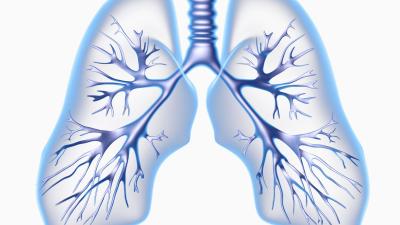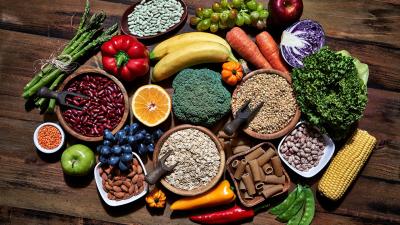Diet Can Fight Diseases Linked to Poor COVID-19 Outcomes
Improving nutrition now may be especially beneficial, as the virus is not projected to peak in parts of the United States until this summer, and experts warn that there could be another outbreak this fall.
Although I’m now counseling Barnard Medical Center patients via telehealth instead of across my desk, my advice remains the same as always: Remember to eat as many fruits, vegetables, grains, and beans (frozen fruits and vegetables, pasta, and dried or canned beans are all great options) as circumstances allow to help boost immunity and reduce the risk of heart disease, type 2 diabetes, and asthma—conditions which now put tens of millions of Americans at greater risk for COVID-19 complications.
The statistics are grim. The American Heart Association reports that “data from the outbreak in Wuhan, China, shows a 10.5% death rate among people with COVID-19 who also have cardiovascular disease, 7.3% for those with diabetes, 6.3% for those with respiratory disease, 6% for those with high blood pressure and 5.6% for those with cancer.” Earlier research found that 99% of people who have died from COVID-19 in Italy had cancer, diabetes, or lung disease, and 76% had high blood pressure.
The Centers for Disease Control and Prevention released a report based on confirmed COVID-19 cases in the United States between Feb. 12 and March 28, 2020. It found that people with heart disease, diabetes, and chronic lung disease are at higher risk for severe COVID-19.
While many factors can increase the risk of heart disease, diabetes, and lung disease, research shows that a plant-based diet can help lower the risk of these conditions, which is why a diet focused on plant foods is more crucial now than ever.
When it comes to heart health, decades of research have shown the benefits of a plant-based diet. A review in Progress in Cardiovascular Disease that I co-authored looked at multiple clinical trials and observational studies and found that a plant-based diet reduces both the risk of and the risk of death from cardiovascular disease by 40%. Our research also found that a plant-based diet reduces the risk of hypertension by 34%.
A review published in JAMA Internal Medicine looked at 39 studies and also found that vegetarian diets were associated with lower systolic and diastolic blood pressures, compared with omnivorous diets. A study in the Journal of Geriatric Cardiology concluded that consuming a diet that is mostly or exclusively plant-based appears beneficial for both the prevention and treatment of hypertension.
Like heart disease, diabetes can be prevented and sometimes reversed with a plant-based diet, which is considered a healthful dietary approach to diabetes by the American Diabetes Association. And research shows that those beans that everyone has stockpiled in their pantries may be especially beneficial at improving fasting blood glucose, insulin, triglyceride levels, and LDL (“bad”) cholesterol.
It may come as surprise, but diet also plays a role in lung health. A new review found that plant-based diets may help prevent and treat asthma. Possible mechanisms include the positive effects from consuming plant-based diets rich in antioxidants and fiber on factors including inflammation, oxidation, and gut microbiota.
Of course, fruits, vegetables, grains, and beans are also loaded with nutrients—like beta-carotene, vitamin C, vitamin E, and zinc—that can boost immune function, something we should all be trying to do right now. While a plant-based diet can’t prevent COVID-19, it can treat the underlying conditions that can exacerbate its severity.
While a plant-based diet can't prevent COVID-19, it can treat the underlying conditions that can exacerbate its severity.
Susan Levin, MS, RD, CSSD, Barnard Medical Center










